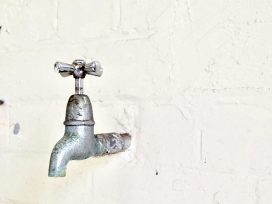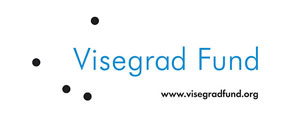
Steady access to safe, drinkable water is still a privilege, and Europe is struggling with ever-worsening droughts. The new episode of the Standard Time talk show discusses chemical hazards, eco guerrillas, and why we can never have enough pelicans.
The question is not how we can protect the EU from demagogic leaders, but how the EU can protect us from them. Marek Seckar, editor of Host, responds to Samual Abrahám’s warning that European stability is threatened by the type of illiberal politician gaining ground in the Visegrád Four nations.
German MEP Jo Leinen once said that the EU is like a bike: it must move forwards, otherwise it will fall over. This is a condition of all existence: should the EU survive, it must keep transforming into something else, respond to the ever-changing reality.
For this reason, the rise of “boorish” politicians from the new member countries could even be positive to the EU’s future: they may function as a kind of vaccination, whereby the organism suffers a latent form of disease and thus creates the necessary antibody. Vice versa, EU membership should have a positive effect on the new countries.
The Union defines itself as a community based first of all on negotiation and consensus, where would-be strong postures prove counterproductive and in the long run positively detrimental for the particular country. Hopefully, it is just a matter of time when the voters notice this. If they do not, we should ask if the EU really is what it presumes itself to be.
The concurrence of ominous factors mentioned by Samuel Abrahám would be deadly even for a democratic system in one compact country, not to mention such a complicated conglomerate. In case a catastrophic coincidence should occur, there are simply no mechanisms to prevent a collapse without threatening the principles of freedom and democracy. Should all the condition described by Abrahám be met, not only would the very existence of the EU be endangered, it would also be a proof that the EU does not work well – that it is ineffective and the citizens no longer want it.
The EU should not be seen as a sacred cow, as a goal we strive to achieve. Rather, it is a means by which we proceed towards certain goals, such as democracy and protection against demagogues. Consequently, the question is not what should be done in case these factors concur, but how we can prevent their concurrence; not how we can protect the EU from demagogic leaders, but how the EU can protect us from them.
What is the answer? As has been said, the leeway for the EU as a whole is very limited and cannot be relied upon. The best and probably the only means of protection are the very principles of the EU: freedom, communication, equality and profitability for all its members. They must be kept to at all costs. As for the rest: time with tell.
Taken from a special English language edition of Res Publica Nowa, published with the support of the International Visegrad Fund

Published 23 October 2009
Original in English
First published by Res Publica Nowa V4
Contributed by Res Publica Nowa © Marek Seckar / Res Publica Nowa / Eurozine
PDF/PRINTSubscribe to know what’s worth thinking about.

Steady access to safe, drinkable water is still a privilege, and Europe is struggling with ever-worsening droughts. The new episode of the Standard Time talk show discusses chemical hazards, eco guerrillas, and why we can never have enough pelicans.

From getaway destination to point of entry, the EU’s southernmost territories attract plenty of ongoing arrivals. Migrant containment policies, outlining stringent confinement and processing, would see newcomers restricted to the archipelago. But could Spain’s swift transfers and regularization turn the tide of migration strategy?